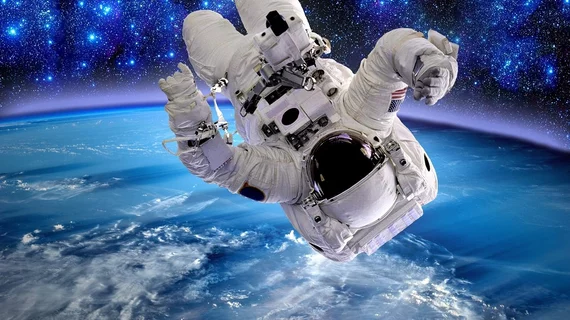Brain MRI scans may help NASA plan safer missions to space
A new imaging study sheds light on what happens to the brain during missions to space. The results could help experts in spaceflight planning and policy.
"Not a lot is known about cognitive impairment in humans during spaceflight,” Donna R. Roberts, MD, Medical University of South Carolina’s Department of Radiology, said in a statement. “Although this study evaluates a small subset of astronauts, it's significantly larger than any previously published study of its kind involving astronauts or Russian cosmonauts."
Roberts’ prior research has shown an upward shift of the brain, tissue crowding at the top of the brain and enlargement of the ventricular system in astronauts who’ve completed long missions in space. However, the group wanted to learn more.
To do so, they gathered data from the NASA Lifetime Surveillance of Astronaut Health program, comparing pre- and post-spaceflight brain MRIs of 19 NASA astronauts; seven of these participants completed short-duration flights and the other 12 were involved in longer missions aboard the International Space Station.
The researchers also looked at cognitive test results from the 12 long-duration astronauts produced by the Spaceflight Cognitive Assessment Tool for Windows—a screening tool to monitor astronauts' “neuro-cognitive” status in space. They also incorporated results of a NASA-backed study that examined astronauts' physical performance of critical tasks during spaceflight and after landing.
After comparing the brain scans to available NASA data, Roberts found “widespread” changes in brain structure that correlated with changes in cognitive performance and motor skills.
The long-term effects of these brain changes remains unknown, the authors wrote, but based on the findings, Roberts argued that NASA needs to change its medical protocol.
While MRI scans are part of that protocol, long-term follow-up imaging remains absent. Roberts argued that such information could be vital to the future of space travel.
“These findings suggest that the brain changes seen with microgravity have measurable behavioral consequences,” Roberts and colleagues explained in the study. “While observed in a relatively small sample, with some variation based on astronaut demographics, these results may have major health significance that should be considered in spaceflight policy and planning.”
The full study was published online in the American Journal of Neuroradiology.

